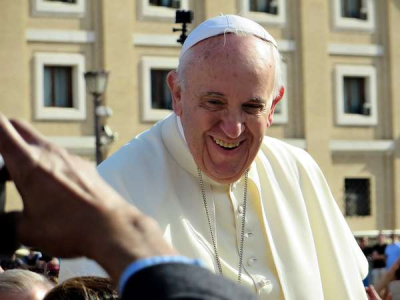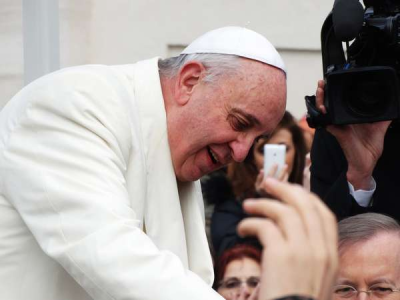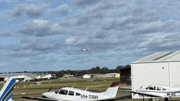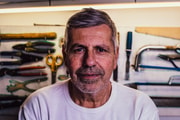Pope Francis' Sudden 3-Hour Surgery: The Procedure & What It Means For His Health
The recent news about Pope Francis has captured our attention at the Seniors Discount Club, serving as a powerful reminder that health surprises can affect us all as we journey through the ageing process.
Pope Francis recently underwent a three-hour surgery in Rome to repair a hernia caused by scars from a previous operation in 2021. The 86-year-old pontiff's surgery was a success, with chief surgeon Sergio Alfieri stating there should be no limitations on his activities and travels after he recovers.

In a show of his strength and spirit, Pope Francis even joked with his surgeon about when they'd have a third operation.
Alfieri commended the Pope's reaction to the general anaesthesia, revealing that he expects him to remain in the hospital for about five to seven days. However, given the Pope’s recent bout of bronchitis, Alfieri added they would 'take all necessary precautions' regarding the duration of his hospital stay.
This leader has faced a string of health problems in recent years but has continued to persevere. Such strength and resilience are undoubtedly inspiring for seniors everywhere.
For those unfamiliar with Pope Francis' condition, he experienced a painful intestinal occlusion that required surgery to repair a laparocele—a hernia that sometimes forms over a scar from previous surgery.
Laparoceles are more common in older individuals and can also be caused by obesity or weak abdominal wall muscles.

The Pope underwent a laparotomy (open abdominal surgery), with a prosthesis used to reconstruct the abdominal wall. In July 2021, a part of his colon had to be removed due to a painful bowel condition called diverticulitis. Early this year, he mentioned the return of the affliction and its impact on his weight.
Despite these health concerns, Pope Francis continues to fulfil his duties. He often relies on a wheelchair or cane for support due to persistent knee pain, having opted not to have knee surgery due to the unpleasant side effects he experienced from the general anaesthesia during his colon operation.
He demonstrates his remarkable resilience as he looks forward to two upcoming summer trips to the Northern Hemisphere. The Vatican has released the itinerary for his visit to Mongolia, emphasising his dedication to fulfilling his commitments.
 As we send our best wishes for a speedy recovery to Pope Francis, let's take this opportunity to remind ourselves not to ignore health concerns. Be it a small change in your usual well-being or something more significant, always consult your healthcare provider.
As we send our best wishes for a speedy recovery to Pope Francis, let's take this opportunity to remind ourselves not to ignore health concerns. Be it a small change in your usual well-being or something more significant, always consult your healthcare provider.
In light of Pope Francis' health situation, how do you prioritise addressing your own health concerns? Do you tend to seek medical advice promptly, or do you sometimes ignore minor changes in your well-being? Share your thoughts on the importance of being proactive regarding healthcare.
Pope Francis recently underwent a three-hour surgery in Rome to repair a hernia caused by scars from a previous operation in 2021. The 86-year-old pontiff's surgery was a success, with chief surgeon Sergio Alfieri stating there should be no limitations on his activities and travels after he recovers.

Pope Francis' recent surgery in Rome reminds us of the health risks we face as we age. Image by gunthersimmermacher from pixabay
In a show of his strength and spirit, Pope Francis even joked with his surgeon about when they'd have a third operation.
Alfieri commended the Pope's reaction to the general anaesthesia, revealing that he expects him to remain in the hospital for about five to seven days. However, given the Pope’s recent bout of bronchitis, Alfieri added they would 'take all necessary precautions' regarding the duration of his hospital stay.
Pope Francis' Health Challenges
Pope Francis, the head of the Catholic Church since 2013, is no stranger to the Catholic-run Gemelli Hospital in Rome, with this being his third stint.This leader has faced a string of health problems in recent years but has continued to persevere. Such strength and resilience are undoubtedly inspiring for seniors everywhere.
For those unfamiliar with Pope Francis' condition, he experienced a painful intestinal occlusion that required surgery to repair a laparocele—a hernia that sometimes forms over a scar from previous surgery.
Laparoceles are more common in older individuals and can also be caused by obesity or weak abdominal wall muscles.

Despite a series of health challenges in recent years, this remarkable leader has displayed unwavering perseverance. Image by reynaldodallin from pixabay
The Pope underwent a laparotomy (open abdominal surgery), with a prosthesis used to reconstruct the abdominal wall. In July 2021, a part of his colon had to be removed due to a painful bowel condition called diverticulitis. Early this year, he mentioned the return of the affliction and its impact on his weight.
Despite these health concerns, Pope Francis continues to fulfil his duties. He often relies on a wheelchair or cane for support due to persistent knee pain, having opted not to have knee surgery due to the unpleasant side effects he experienced from the general anaesthesia during his colon operation.
He demonstrates his remarkable resilience as he looks forward to two upcoming summer trips to the Northern Hemisphere. The Vatican has released the itinerary for his visit to Mongolia, emphasising his dedication to fulfilling his commitments.
Key Takeaways
- Pope Francis has undergone a three-hour operation to repair a hernia in a Rome hospital.
- The surgery was successful, and the Pope is expected to be in the hospital for about five to seven days.
- This is the Pope's third hospital stay since being chosen to head the Catholic Church in 2013.
- Despite recent health problems, Pope Francis has two summer trips planned for the Northern Hemisphere.
In light of Pope Francis' health situation, how do you prioritise addressing your own health concerns? Do you tend to seek medical advice promptly, or do you sometimes ignore minor changes in your well-being? Share your thoughts on the importance of being proactive regarding healthcare.







